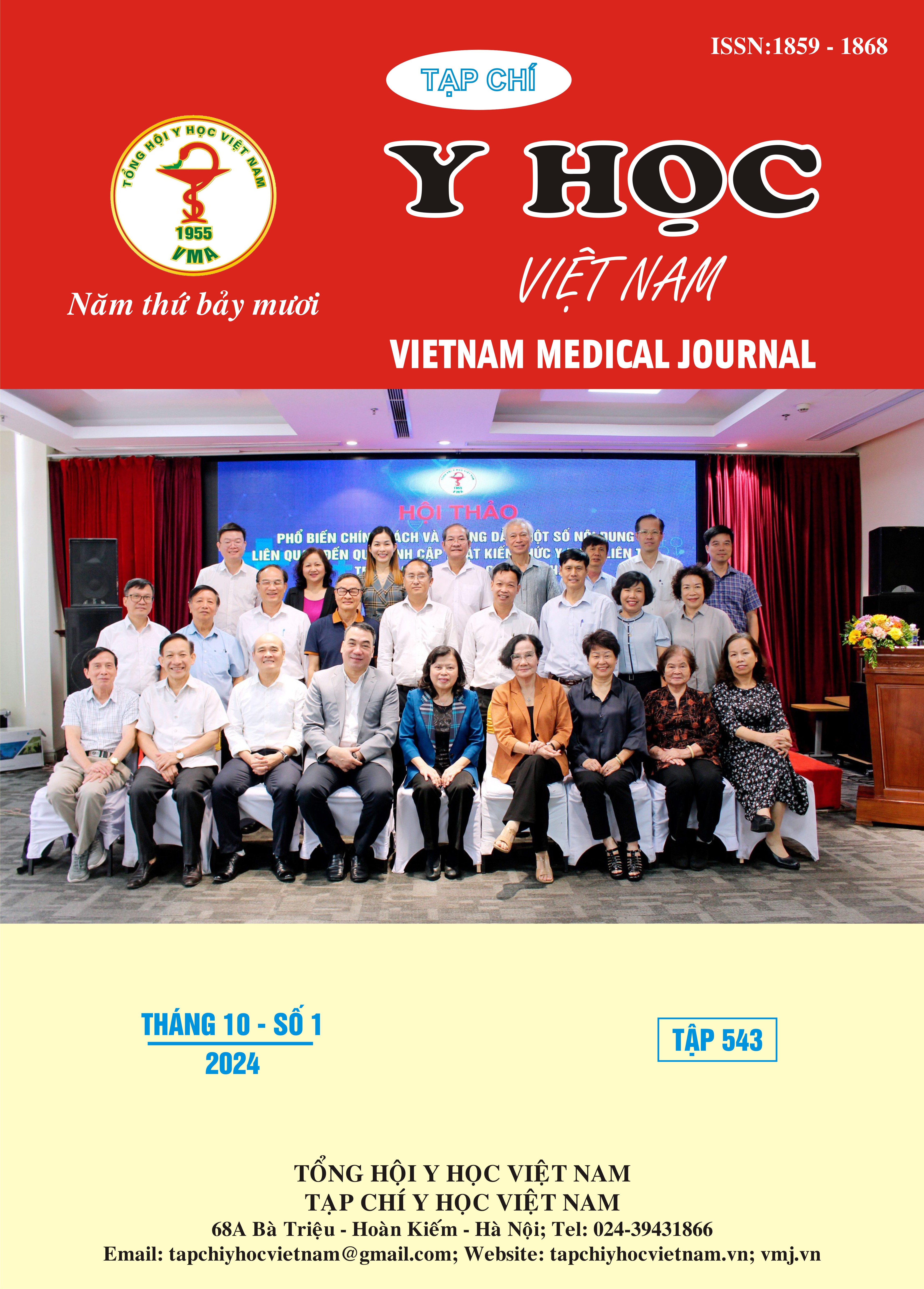CORRELATION BETWEEN THE SELF-ADMINISTERED BOSTON QUESTIONNAIRE AND ELECTROMYOGRAPHY IN THE ASSESSMENT OF CARPAL TUNNEL SYNDROME
Main Article Content
Abstract
Objectives: To investigate the correlation between the self–administered Boston questionnaire and electromyography in the assessment of carpal tunnel syndrome (CTS). Methods: Prospective descriptive study collected 76 patients (90 hands) with severe carpal tunnel syndrome who were indicated for carpal tunnel decompression surgery. 32 patients (40 hands) agreed to be treated surgically and 14 patients (17 hands) had follow-up re-examination 3 months after surgery, University Medical Center Ho Chi Minh city from November 2022 to May 2023. Results: There was no significant correlation between average symptom severity score (SSS), functional status score (FSS) and nerve conduction studies both before and after 3 months of surgery. Conclusion: Before surgery, electromyography plays a role in determining the diagnosis, differential diagnosis with other causes and grading the severity of CTS, which plays a very important role in deciding on treatment methods as well as in prognosis for the patients. After surgery, the assessment of clinical symptoms is a good measure in evaluating the results after surgery and the use of the self–administered Boston questionnaire is recommended for post-operative monitoring and research purposes.
Article Details
Keywords
Carpal tunnel syndrome, carpal tunnel surgery, self –administered Boston questionnaire, electromyography, correlation.
References
2. Chang C W, Wang Y C, Chang K F. A practical electrophysiological guide for non-surgical and surgical treatment of carpal tunnel syndrome. The Journal of hand surgery, European volume. Feb 2008; 33(1):32 - 7. doi:10.1177/ 1753193408087119.
3. De Kleermaeker F, Boogaarts H D, Meulstee J, Verhagen W I M. Minimal clinically important difference for the Boston Carpal Tunnel Questionnaire: new insights and review of literature. The Journal of hand surgery, European volume. Mar 2019;44(3):283 - 289. doi:10.1177/1753193418812616.
4. Heybeli N, Kutluhan S, Demirci S, Kerman M, Mumcu E F. Assessment of outcome of carpal tunnel syndrome: a comparison of electrophysiological findings and a self-administered Boston questionnaire. Journal of hand surgery (Edinburgh, Scotland). Jun 2002; 27(3):259 - 64. doi:10.1054/jhsb.2002.0762.
5. Levine D W, Simmons B P, Koris M J, et al. A self-administered questionnaire for the assessment of severity of symptoms and functional status in carpal tunnel syndrome. The Journal of bone and joint surgery American volume. Nov 1993;75(11):1585 - 92. doi:10.2106/00004623-199311000-00002.
6. Sançmış M, Cavit A, Çakıcı İ, Özcanlı H, Uysal H. Is Boston questionnaire an alternative to electromyography for evaluation of the surgical outcome for carpal tunnel syndrome? Turkish journal of physical medicine and rehabilitation. Sep 2020;66(3):336-342. doi:10.5606/ tftrd.2020.3136.
7. Werner R A, Andary M. Electrodiagnostic evaluation of carpal tunnel syndrome. Muscle & nerve. Oct 2011;44(4):597 - 607. doi:10.1002/mus.22208.
8. Yilmaz E, Toluk Ö. Comparison of clinical findings and electromyography results in patients with preliminary diagnosis of carpal tunnel syndrome. Journal of electromyography and kinesiology: official journal of the International Society of Electrophysiological Kinesiology. Aug 2022;65:102688. doi:10.1016/ j.jelekin.2022.102688.


